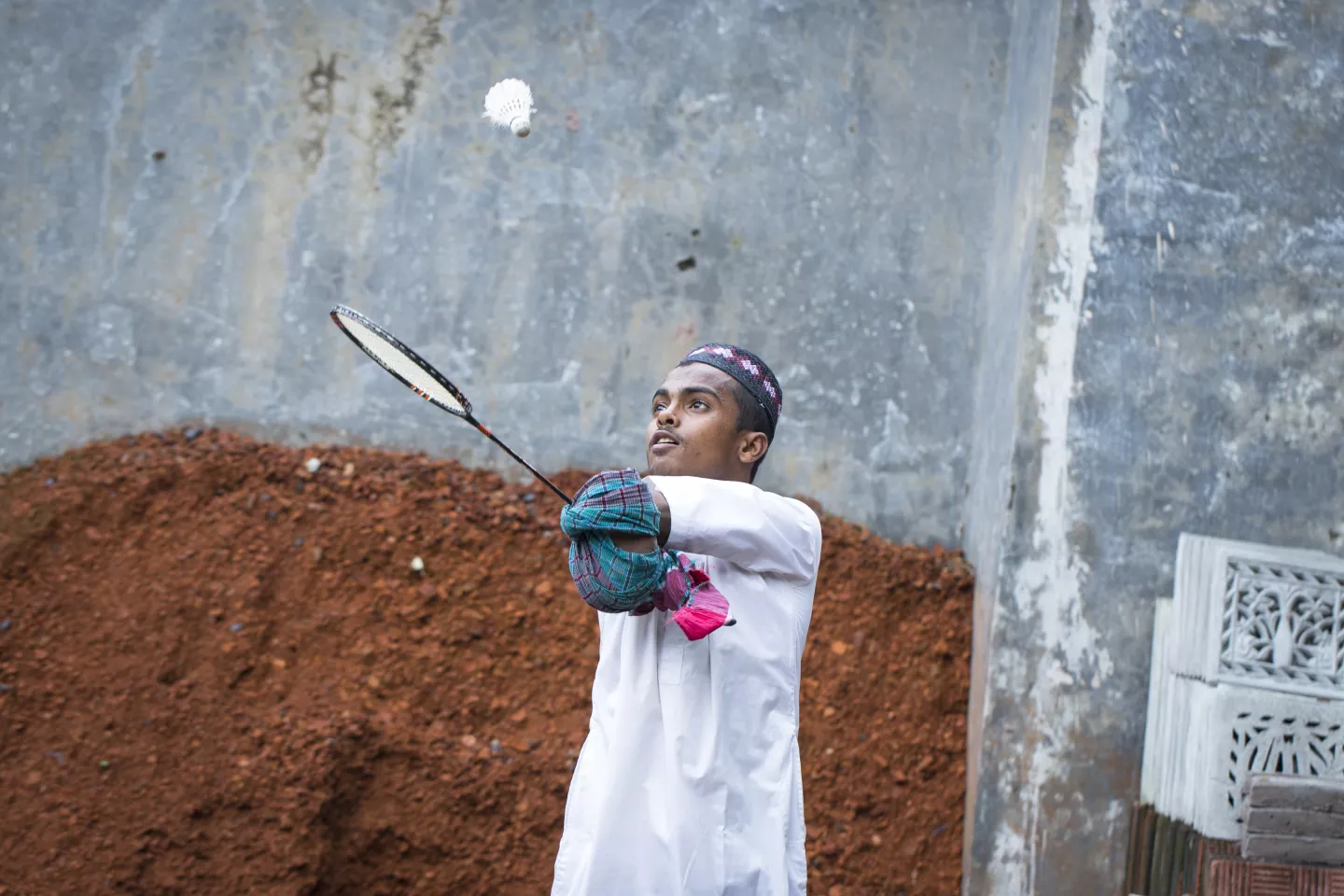NEW YORK, 2 December 2021 – Ahead of the International Day of Persons with Disabilities, UNICEF said that around 240 million children with disabilities around the world – one in 10 children worldwide – are denied their fundamental rights.
“Like all children around the world, children with disabilities have the right to proper care, education, adequate nutrition and social protection – rights that are not recognised in humanitarian situations, but are too often denied,” said Rosangela Berman Beeler, UNICEF Global Disability Leader. “We must do more to help the nearly 250 million children with disabilities around the world realise their rights. To provide equal opportunities for children with disabilities, we must ensure that community supports and services are inclusive and accessible, that stigma and discrimination are eradicated, and that they are protected from violence, abuse and neglect. Behind the statistics are stories of children with hope, fear, potential and ambition.”
According to the latest data, children with disabilities are more likely to:
24 percent less likely to receive early stimulation and appropriate care. Children with disabilities are at risk of missing out on the care and stimulation they need in early childhood because they are more exposed to factors that make them more vulnerable. These include poverty, stigma and discrimination, exclusion from early learning opportunities, institutionalization, violence, abuse and neglect. 42 percent less likely to acquire basic literacy and numeracy skills. Children with disabilities typically face additional barriers that increase their risk of experiencing suboptimal educational pathways. When families search for educational opportunities for their children, they often find schools and classrooms that are inaccessible, either physically or due to a lack of appropriate learning materials. 49 percent more likely to have never attended school. The likelihood that a child has never attended school varies depending on the child’s functional difficulties and economic background. For example, children with disabilities from the poorest families are significantly more likely to have never attended school than their peers from the wealthiest families. They are 25 percent more likely to have wasting and 34 percent more likely to have stunting. Children with disabilities often have higher rates of underweight, stunting and wasting compared to their peers without disabilities. This is especially true for children who are less able to see, have difficulty playing or walking, and for children from the poorest households. They are 53% more likely to experience symptoms of acute respiratory infection. Children with disabilities, especially those from the poorest and rural households, are at higher risk of experiencing diarrhea, fever and symptoms of acute respiratory infection. Children with disabilities who contract illnesses or infections, including ARIs, are more likely to become seriously ill, have poorer health and be hospitalized than children without disabilities. They are 51% more likely to feel unhappy and 41% more likely to feel discriminated against. How an individual perceives their well-being is based on a range of factors. However, many children with disabilities experience discrimination because of their impairments. Discrimination can be a barrier to these children receiving the services they need to realise their rights and therefore can have a negative impact on the subjective well-being of children with disabilities.
UNICEF works with partners at the global and local levels to realize the rights of children with disabilities. All children, including children with disabilities, must have a say in the issues that affect their lives, and be given the opportunity to fulfil their potential and claim their rights. UNICEF calls on governments to:
Provide equal opportunities for children with disabilities. Governments, in cooperation with people with disabilities, experts working with children, businesses and organisations, should ensure that:
All services are inclusive and accessible: Birth registration, early childhood development, education, health, nutrition, immunization, water and sanitation, and social services must be accessible and inclusive to children with disabilities and their families throughout their lifespan, wherever they live, in both stable and emergency situations. Education is inclusive and accessible: All aspects of education must be accessible to support children with disabilities to learn and develop, alongside children without disabilities, in the communities in which they live. This includes ensuring accessible learning materials and inclusive curricula, assistive technology, training teachers and administrators, and providing accessible infrastructure, recreational spaces, water and sanitation facilities, and transportation. Stigma and discrimination are eradicated: Support and amplify the voices of children with disabilities by investing in evidence-based, multi-layered strategies to address negative attitudes and ableism, enacting policies that combat institutionalized stigma and discrimination, and empowering children, families, and communities to drive positive cultural change.
Consult with people with disabilities and take into account all disabilities and the specific needs of children and their families when providing inclusive services and equitable quality education.
Caregiving and Family Friendly Policies: Promote responsive caregiving, family friendly policies and prioritize programs at the community level to enable families to care for children with disabilities at home or provide alternative family-based care settings. Mental Health and Psychosocial Support: Ensure that children with disabilities and their families can access support services by integrating them into community-based health care, schools, protective and justice services, and spaces for children and youth affected by emergencies. Protection from Violence, Abuse and Neglect: Support child protection systems and workforces to become disability-inclusive, prevent the removal of children with disabilities from their families, end institutionalization, and increase their capacity to prevent and address violence, exploitation, abuse, neglect and harmful practices against children with disabilities of all kinds.
# # #
Notes to editors:
International Day of Persons with Disabilities will be held on December 3, 2021

